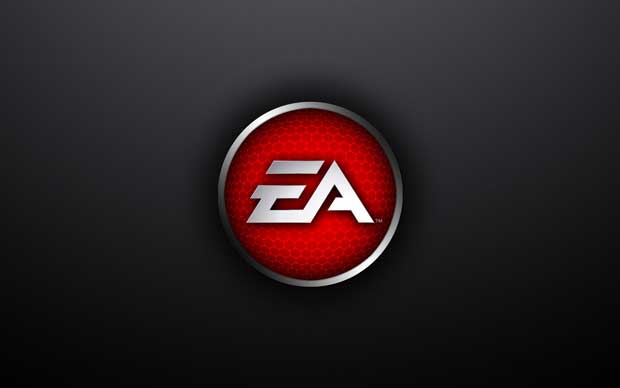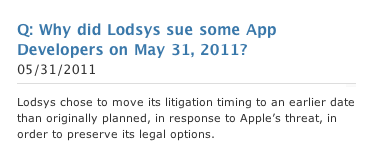 |
| "Wii U" is the sound of an air raid siren warning of impending destruction, Nintendo. |
Nintendo has been the iconic leader of the videogame industry since they re-invented the business in the 1980's. The industry had been crushed by the flood of Atari games of questionable quality, and was in a state of shock. Some predicted that it was a fad that would never return. Then Nintendo hit it big with the Nintendo Entertainment System (NES), and gradually the industry once again became popular. Nintendo's arch-rival Sega was very successful with the Genesis, but Nintendo kept their crown with a succession of amazing titles and newer consoles. The NES was followed by the Super NES, and then the N64, each bringing a substantial boost in graphics power and a raft of great new games.
Sony entered the fray with the PlayStation, which quickly became a hit. Part of the appeal for the PlayStation was the use of a CD as the game medium. This didn't matter so much to the consumer, but it made a huge difference to publishers. CDs were easier and cheaper to produce, and could be produced much faster than cartridges. Cartridge production, and the bottlenecks imposed by Nintendo, could delay the release of games for months. Worse, you could have a hit game and be unable to restock for months while waiting for your cartridges to be produced and shipped by boat... and then perhaps the enthusiasm had waned and you were stuck with a warehouse full of unsalable games.
Microsoft joined in the fun with the Xbox, which also used a disc as the format. Nintendo, now beset with two strong competitors, finally bowed to the inevitable and released the GameCube, which used a disc. But Nintendo's intransigence at adopting a new format (not even a new business model, mind you) had cost them the leadership position in the marketplace.
Consoles continued to advance, and with the PS3 and the Xbox 360 Sony and Microsoft pioneered a robust online service that fostered multiplayer action, community, and sales of downloadable products. Nintendo made a half-hearted effort to get online with the Wii, but mostly they were happy to be outselling Sony and Microsoft for a couple of years. The price advantage of the Wii and the popularity of motion control among a wider than traditional gaming audience more than made up for the weak online offerings. (Friend Codes...Really, Nintendo? How could anyone take your online efforts seriously?)
Now we come to the last two years of the game industry. Massive changes on a scale not seen since Atari collapsed have transformed the business. Mobile gaming on smartphones and tablets has grown swiftly, to the point where its sales will surpass handheld console software sales this year, even with an average selling price of less than $2 versus about $30.
Free-to-play games, downloadable content, digital distribution, subscriptions, ad-supported... all of these market areas are zooming. In a short time the free-to-play model has burned through the MMO market, to the point where it's unusual that a new game isn't offered with that model, and old games are rapidly converting. Digital sales are on a pace to rapidly overtake retail sales within a year or two.
Social gaming has created new game companies with market caps that rival the biggest and begin to approach Nintendo's. Zynga has a
current market cap, pre-IPO, of about $10 billion, versus
Nintendo's current market cap of $27.5 billion, and compared to EA's of $8.1 billion and Activision's $13.7 billion, that's not bad. Of course, if you want to look at profit margins, Zynga hasn't released that info... but all indications are that their margins are huge.
Meanwhile, retail sales of traditional packaged software have fallen for two years running, and this year looks to make it a third year in a row. Consumers are busy playing games they already have in multiplayer mode, buying downloadable games or new content for games they already have, or playing games on their smartphones or on Facebook. Looming on the horizon, streaming games from OnLive and Gaikai are being built into more devices, and smartphone technology will be connected to TV sets in the family room to bring their open development model, thousands of titles of low-cost games right into direct competition with consoles.
What is Nintendo's strategy in this time of essential transformation? Why, keep doing business the way they have for years. Sales are dropping fast for the Wii? Wait a while, reduce the price a bot, and announce a new console with a new feature and somewhat better performance. The exact same business model of selling software in retail stores, though. That should fix the problem, right?
You'd think Nintendo would have learned something from the 3DS debacle, where sales have been so far below their expectations as to be embarrassing. (I mean, you get 1.06 million units sold in Japan, your home market, in three months, when you had projected to sell 1.5 million in the first week? Pathetic.) No, instead Nintendo figures that there's really no problem here, just put some more money into marketing and when some new games come out everything will be fine.
Nintendo's take on the free-to-play phenomenon that has generated hundreds of millions (if not billions) in profits in a couple of years? No way will Nintendo do any of that, Iwata-san
tells the Wall Street Journal. Nintendo won't be doing any of that nonsense, it would be bad for the industry, not to mention Nintendo itself.
To me, this signals the beginning of the end for Nintendo. Perhaps their perspective is skewed because there isn't much of an online market in Japan, where most kids don't have computers, and aren't downloading or playing games on computers or smartphones. Whatever the reason, the market is changing fast, and Nintendo has just declared they don't believe in reality.
It's sad, really. Think about how well Nintendo could do by offering Pokemon as individual downloads... or Animal Crossing... or new dungeons for Link to explore. They have so many iconic brands that are not realizing their value, as we wait ever-increasing lengths of time for new titles to come. Meanwhile developers flock to other platforms, and the creative energy goes elsewhere.
The 3DS is just the first warning sign. I don't think the Wii will have a strong life, even if Nintendo reduces the price yet again. The Xbox 360 continues to roll up new sales in part because there's a lot of great games coming out for it... not just in retail stores, but online. The PS3 is growing, too... and those two consoles are twice the price of the Wii. The Wii U, when it finally arrives, will be dealing with handicaps of a high cost and a small library of games, while the existing consoles and the new smartphone-based gaming juggernauts will be conquering the market. Without a significant online presence, Nintendo is doomed... and they show little signs of any progress even towards something half as good as Xbox Live or PSN. PSN has already started exploring free-to-play, and I'm sure by next year that business model will be well-established on consoles. Just not Nintendo's consoles.
What could Nintendo do to succeed? Embrace online, create a robust online experience, leverage their IP into new business models even if they aren't the ones producing the software. Sure, release a new console... but make sure your key software titles ship with it, not months afterward (the 3DS shows the folly of delayed release of key software). Keep the Wii generating revenue, reduce the price to $99 this holiday. Be ready to cut the 3DS to $199 for the holidays, or sooner if need be, and pack in a software title. Throw open development for the 3DS so that it can do more than just play games; make it easy for developers to extend its capabilities. Embrace digital distribution of your titles, create DLC for your hit titles. If Sony can get their old PlayStation titles onto Android, you can too.
Drop the prices on your old software to see where you can maximize revenue. Everyone with a Wii should have the incentive to get lots of old NES and SNES titles... run sales, promotions, get people excited about turning on their Wii to see what the latest is.
Nintendo, you have so many advantages, and you're wasting them right now. If you were a US company the vultures would be circling, looking a for a white knight to buy them out and start leading the business in the direction of profits once again. Hey, Apple, want to take over a slightly used game publisher?
Sadly, I don't see Nintendo changing much, nor do a I see a company buying them out. The likely scenario is a slow fade into irrelevance, as other parts of the industry grow faster. With a few more years of this sort of decline, Nintendo may have to dial back further and just become a software company. Hopefully, their best characters will survive in some form. Nintendo may be able to remain a viable company, but I don't think they'll ever lead the industry again.
































